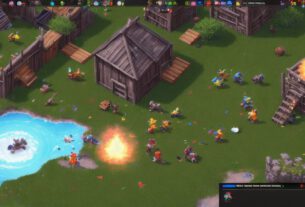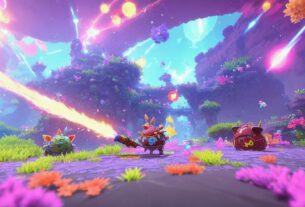In recent years, non-fungible tokens (NFTs) have become increasingly popular among developers and investors alike. NFTs are unique digital assets that can represent anything from art to collectibles to real estate. They offer a new way for creators and owners to monetize their work and connect with their fans in a more meaningful way.
One of the biggest advantages of NFTs is that they allow for true ownership of digital assets. Unlike traditional digital files, which can be easily copied and shared without permission, NFTs are one-of-a-kind and cannot be replicated. This makes them highly valuable and desirable, and it also opens up new opportunities for creators to monetize their work.
NFTs can also be used to create unique experiences and engage with fans in a more personal way. For example, a musician could release an NFT that represents a special concert ticket or backstage pass, giving fans exclusive access to content and events that they couldn’t otherwise experience.
Another area where NFTs are gaining popularity is in the real estate industry. NFTs can be used to represent fractional ownership of properties, making it easier for investors to get a piece of the action without having to purchase an entire property. This opens up new opportunities for real estate developers and investors to create more accessible and inclusive housing options.
Despite their many benefits, NFTs are not without their challenges. One of the biggest obstacles is the lack of standardization and regulation in the industry. There are currently no widely accepted standards for creating and trading NFTs, which can make it difficult for creators and investors to navigate the market. Additionally, there are concerns about the environmental impact of NFTs, as they often require significant computing power to create and store.
Despite these challenges, however, the future of NFTs looks bright. As more developers and investors enter the market and demand for unique digital assets continues to grow, we can expect to see even more innovative uses for NFTs in the years to come. Whether you’re a creator looking to monetize your work or an investor looking for new opportunities, NFTs are definitely worth exploring.
FAQs

- What are non-fungible tokens (NFTs)?
- NFTs are unique digital assets that can represent anything from art to collectibles to real estate. They offer a new way for creators and owners to monetize their work and connect with their fans in a more meaningful way.
- What are the benefits of using NFTs?
- NFTs allow for true ownership of digital assets, which can be highly valuable and desirable. They also open up new opportunities for creators to monetize their work and engage with fans in a more personal way. NFTs can also be used to create unique experiences and connect investors with real estate opportunities.
- What are the challenges of using NFTs?
- There is currently a lack of standardization and regulation in the NFT industry, which can make it difficult for creators and investors to navigate the market. Additionally, there are concerns about the environmental impact of NFTs, as they often require significant computing power to create and store.
- How can NFTs be used in real estate?
- NFTs can be used to represent fractional ownership of properties, making it easier for investors to get a piece of the action without having to purchase an entire property. This opens up new opportunities for real estate developers and investors to create more accessible and inclusive housing options.



